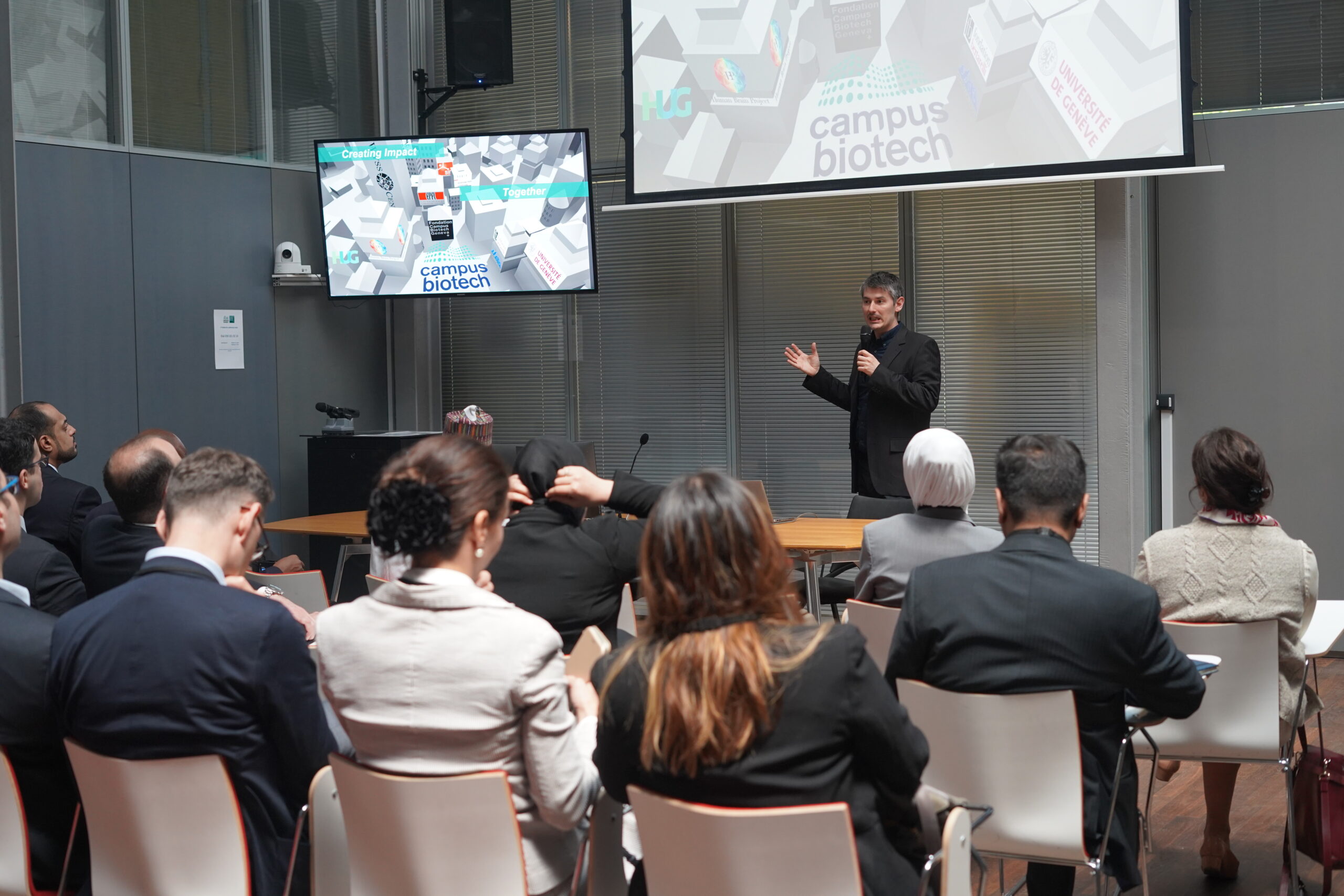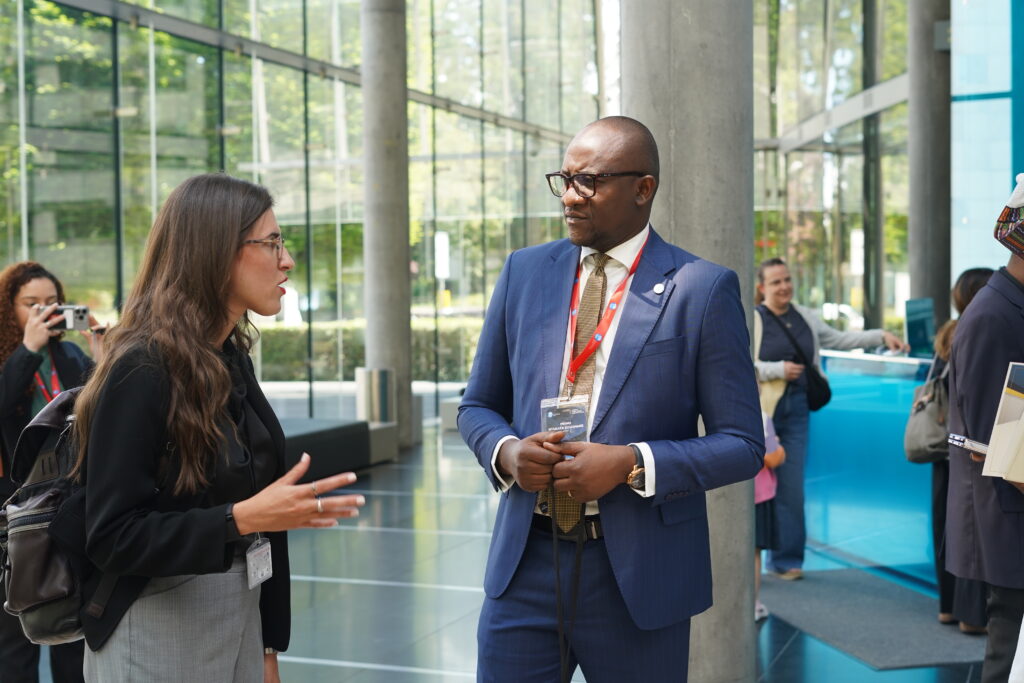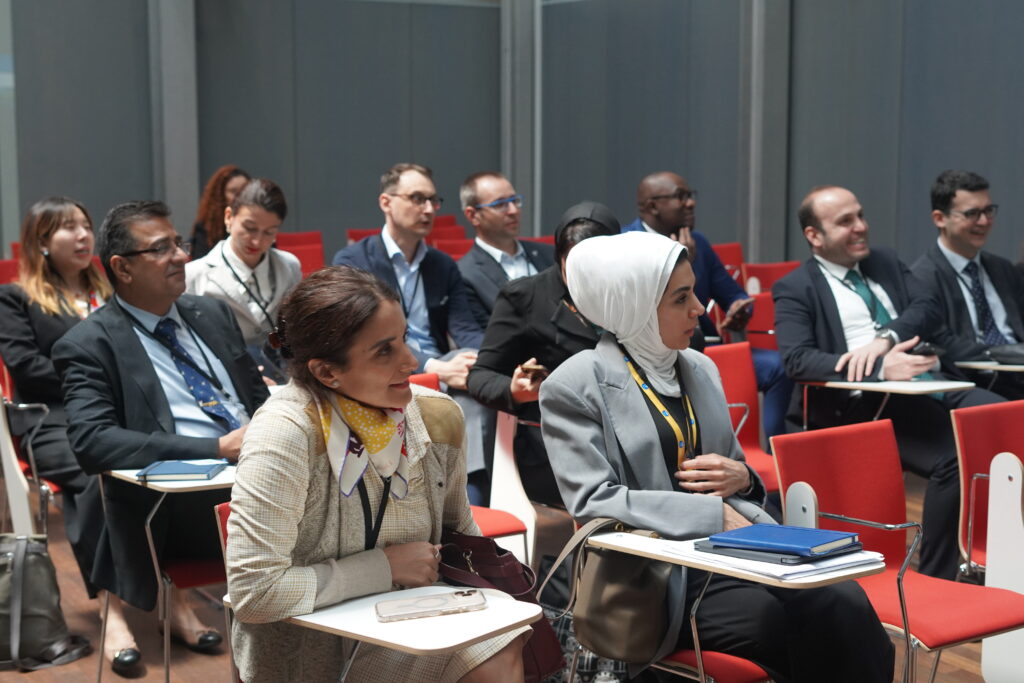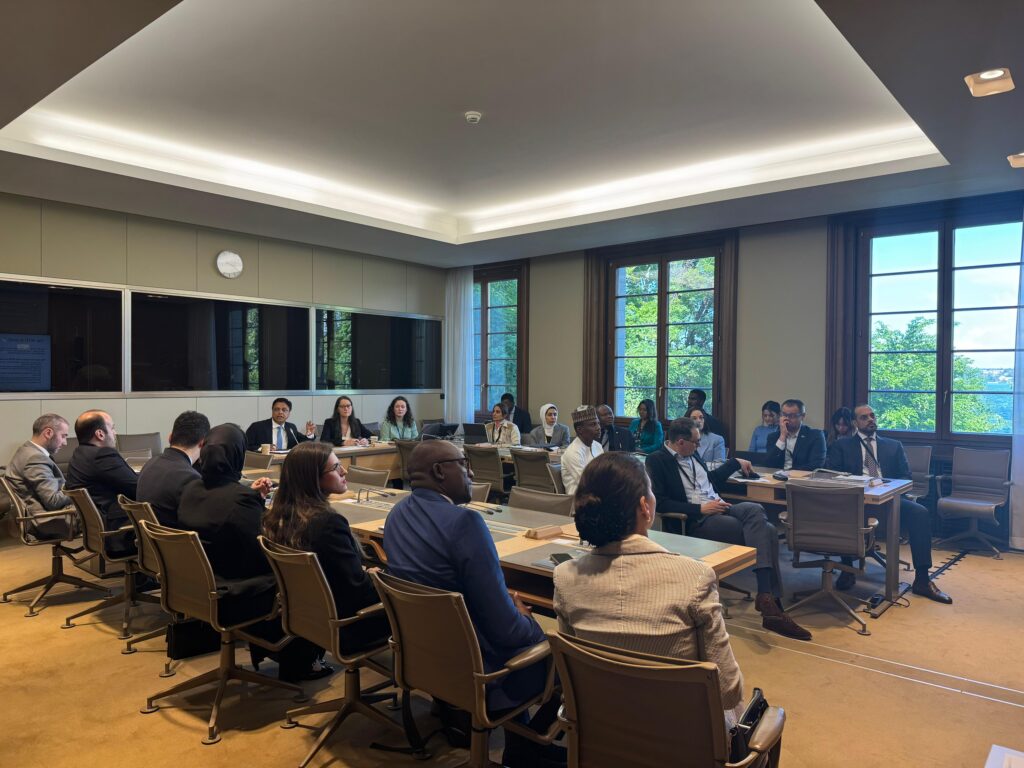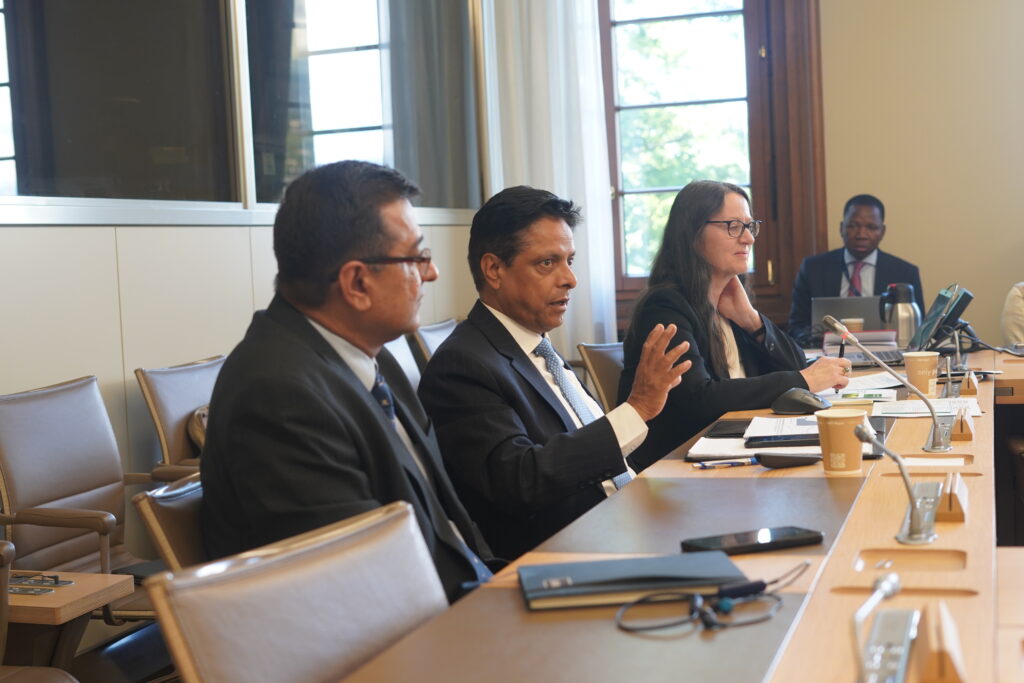The third day of the WAIPA Global Leadership & Innovation in Investment Promotion Masterclass, held in collaboration with the World Free Zones Organization (World FZO), took a deep dive into the power of digital transformation, technology ecosystems, and global policy frameworks in shaping the future of investment promotion.
Through insightful discussions and two high-impact site visits—to Campus Biotech and the World Trade Organization (WTO) Headquarters—participants were exposed to real-world examples of how strategic digital tools and frontier innovation can enhance investment readiness, ecosystem building, and facilitation practices.
Leveraging GIS and Land Platforms to Streamline Investment Services
The day began with a session focused on how Investment Promotion Agencies (IPAs) can utilize GIS-based mapping tools and integrated land platforms to optimize investor targeting and site selection processes.
Examples shared from national systems in countries like India, Morocco, and Malaysia highlighted platforms where investors can:
-
Search industrial plots by sector and land size
-
View real-time infrastructure data, including connectivity, utilities, and proximity to services
-
Initiate project workflows online, reducing the need for multiple in-person site visits
“Digital platforms are no longer a luxury—they are a baseline for competitiveness in the global investment landscape.”
The session emphasized that even low-cost, open-source GIS systems can deliver high-value impact, especially when integrated across regional or national levels. These tools not only increase transparency but also reduce friction for investors evaluating location options.
Campus Biotech Visit: Where Research Transforms into Investment Potential
In the afternoon, participants visited Campus Biotech, Geneva’s flagship innovation hub for neuroscience, biotechnology, and precision medicine. The site exemplifies how frontier science and public-private collaboration can evolve into globally competitive investment ecosystems.
Highlights included:
-
AI and neuroscience powering real-time rehabilitation tools, such as wearable neuro-electrical systems that help restore mobility in individuals with spinal injuries
-
Virtual reality platforms designed for surgical training and simulation
-
Digital brain replicas and stem cell-derived organoids for safe, preclinical drug testing
Participants also learned about the platform’s role in supporting over 500 researchers and entrepreneurs, showcasing the importance of local innovation ecosystems in attracting knowledge-driven investment.
WTO Visit: Global Frameworks for Investment Facilitation
The final site visit of the day brought the delegation to the WTO Headquarters, where Ratnakar Adhikari, Executive Director of the Enhanced Integrated Framework and Claudia Locatelli, Senior Counsellor, Trade in Services and Investment Division led a discussion on the Investment Facilitation for Development (IFD) Agreement.
Key insights:
-
The IFD is a plurilateral agreement, currently supported by 126 WTO members, designed to reduce procedural barriers to investment
-
It does not include market access or investor-state dispute mechanisms, focusing instead on transparency, simplification, and capacity building
-
The agreement provides technical assistance for developing countries, helping them implement modern investment facilitation practices
-
The IFD establishes the first global benchmarks for investment facilitation, aligned with WTO principles
The session highlighted how investment facilitation is increasingly recognized as essential to both trade integration and sustainable development, particularly for countries aiming to diversify their economies and enhance their global competitiveness.
Conclusion: Technology and Policy as Twin Pillars of Modern Investment Promotion
Day 3 of the Masterclass underscored a powerful theme: investment promotion in the 21st century must be both digitally enabled and globally aligned. Whether through interactive land mapping systems, biotech innovation hubs, or global policy frameworks like the IFD Agreement, IPAs must evolve to meet investor expectations in an increasingly complex world.


